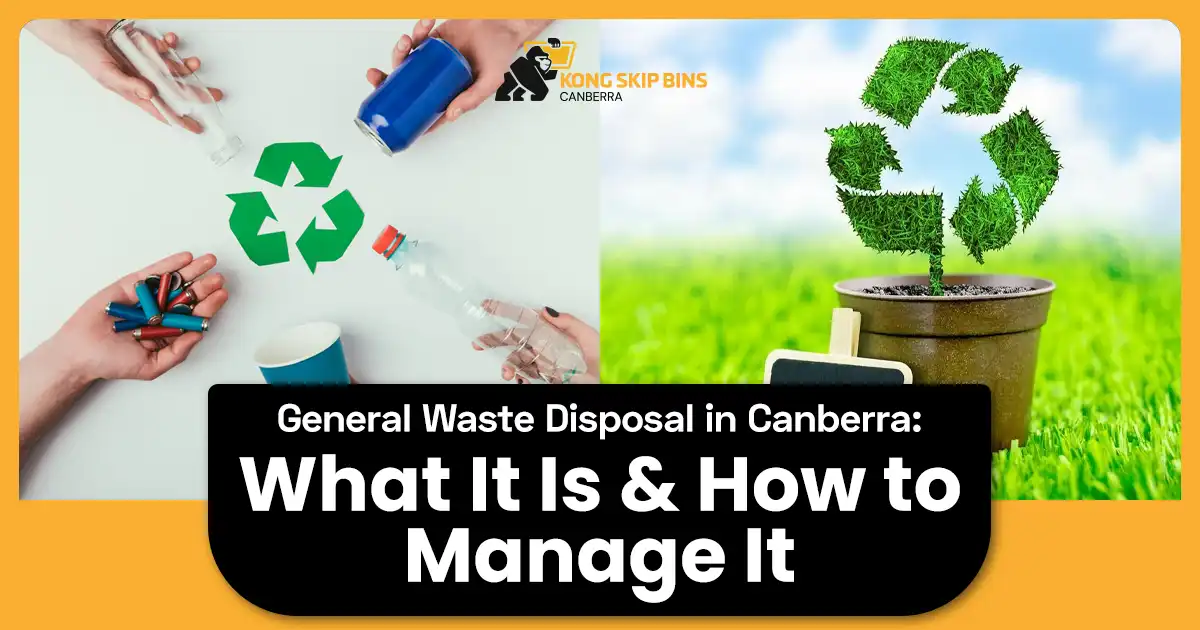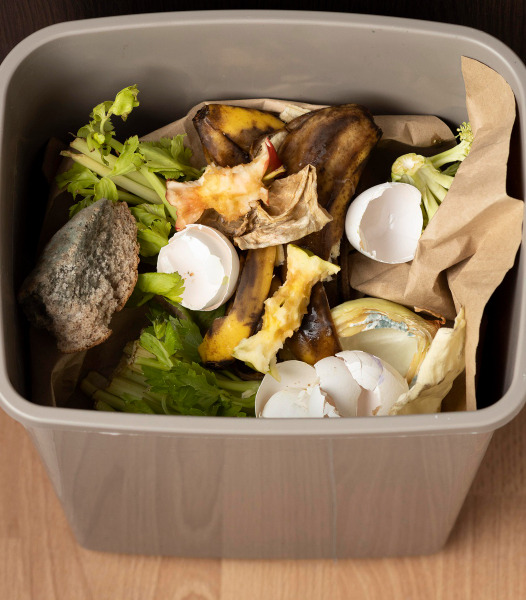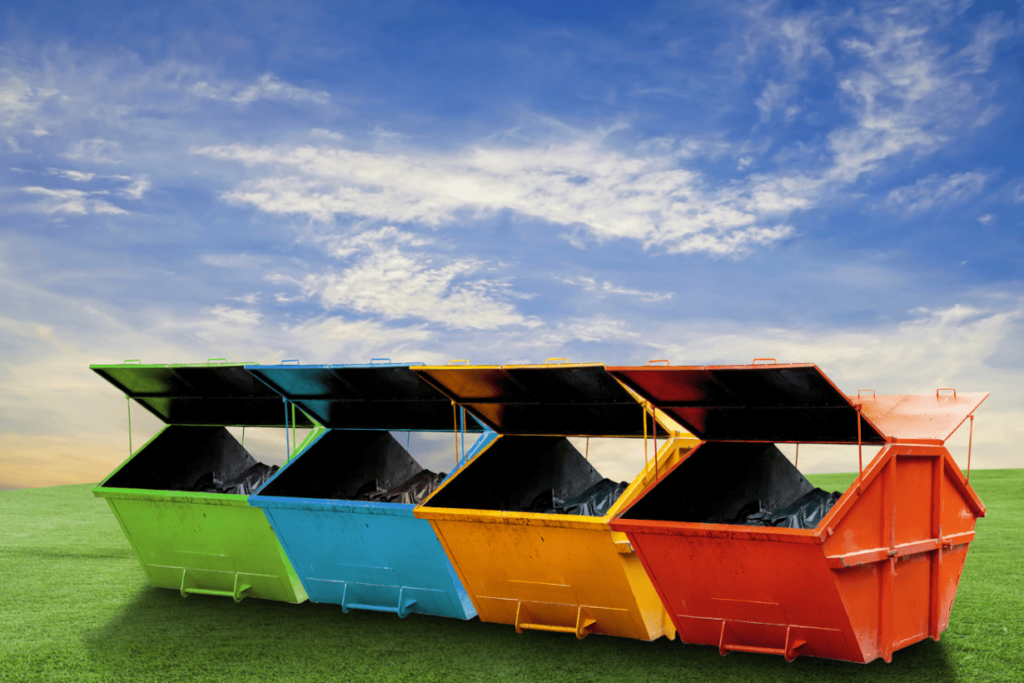
As a homeowner in Canberra, managing waste correctly is not just a responsibility—it’s a necessity. With growing awareness around sustainability and environmental impact, understanding the types of waste generated in our homes has become more important than ever. One of the most common yet misunderstood categories is general waste.
General waste, often referred to as landfill waste, includes everyday items that can’t be recycled, composted, or considered hazardous. If you’ve ever stood in front of your bin unsure where an item should go, you’re not alone. This guide aims to simplify the confusion and help you manage your household waste more effectively.
In this article, we’ll break down what qualifies as general waste, highlight common household items that belong in this category, explain where your rubbish ends up, and offer practical tips to reduce your environmental footprint—all tailored for Canberra homes.
What Is General Waste?

General waste refers to everyday rubbish that cannot be recycled or composted and doesn’t pose a threat to human health or the environment like hazardous waste does. It typically ends up in landfill and includes materials that have no viable reuse or recovery pathway.
In simple terms, general waste is what remains after you’ve sorted out your recyclables, organics (like food scraps and garden waste), and special items like batteries or electronics. Examples of general waste include soiled food packaging, plastic wrappers, broken ceramics, nappies, and polystyrene.
Knowing what falls into this category is crucial. It ensures we don’t contaminate recycling bins and helps reduce the burden on landfill systems. Every bit of effort counts in keeping our communities cleaner and more sustainable.

Common Household Items in General Waste
Here’s a list of everyday items in most Aussie homes that typically belong in the general waste bin:
- Used nappies and sanitary products
- Broken glassware and ceramics (not jars or bottles)
- Plastic bags and wrappers that can’t be recycled
- Soiled or greasy food packaging (like pizza boxes)
- Polystyrene trays and foam packaging
- Rubber and soft plastics (if not accepted in local recycling)
- Vacuum dust and sweepings
- Old sponges and cleaning pads
Why can’t these items be recycled? Many are made of mixed materials or contaminated with food waste, making them unsuitable for recycling streams. Always check with your local council for specific recycling rules, as they can vary slightly across regions.
Where Does General Waste Go?
Once your general waste is collected from your kerbside bin, it typically heads straight to a landfill. In some cases, it might first be taken to a waste transfer station for sorting, but unless recoverable materials are identified, most of it ends up buried.
In Canberra, landfill remains the primary disposal method for general waste. Although modern landfills are engineered to minimise environmental impact—such as by capturing methane gas—there’s still a significant toll on the environment due to greenhouse gas emissions and land use.
Being aware of where our waste ends up can motivate better waste-sorting habits at home.
Environmental Impact of General Waste
The effects of general waste on the environment are far from harmless. Landfills produce methane, a potent greenhouse gas that contributes to climate change. Plus, non-biodegradable items can persist for centuries, leaching chemicals into the soil and water.
Excessive general waste also means a loss of resources. Items that could have been recycled or reused instead take up space in already overburdened landfills. Reducing general waste not only helps the environment but also conserves valuable materials and energy.
Understanding this impact encourages homeowners to rethink what they throw away and adopt more sustainable waste habits.
How to Reduce General Waste at Home
Cutting down on general waste doesn’t have to be overwhelming. Start with these simple steps:
- Buy in bulk to reduce packaging waste
- Avoid single-use items like disposable cutlery and plastic bags
- Repair before replacing—mend clothes, fix appliances
- Compost food scraps and garden clippings
- Choose products with minimal or recyclable packaging
- Use reusable containers and bags
- Sort your waste properly using local guidelines
These small changes can significantly reduce your contribution to landfill. It’s all about being more mindful of what we consume and how we dispose of it.
Tips for Managing General Waste Responsibly
Managing your general waste is as much about routine as it is about awareness:
- Always double-check what belongs in which bin
- Encourage your family to follow proper waste-sorting rules
- Set a reminder for bin collection days
- Label bins at home to avoid confusion
- Keep updated with your council’s waste management policies
Proper waste management not only benefits the environment but also helps avoid fines for incorrect bin use.

Government and Council Regulations
Canberra’s local councils provide clear guidelines for waste disposal, including what qualifies as general waste. In some areas, placing the wrong items in your bin can result in fines or missed collections.
Most councils also offer resources like waste calendars, mobile apps, and helplines to help residents sort waste correctly. Check your local council website for specific information on bin colours, accepted materials, and waste drop-off points.
Conclusion
Understanding what general waste is and how to manage it properly is a crucial step towards a cleaner, more sustainable future. For Canberra homeowners, this means making smarter choices in what we buy, how we dispose of items, and how we educate those in our homes.
By reducing general waste and sorting our rubbish correctly, we contribute to a more efficient waste system and protect the environment for generations to come. Start small, stay consistent, and every little action will add up to meaningful change.
FAQs About General Waste
Q: Can greasy food containers go in recycling?
A: No, heavily soiled items should go in general waste.
Q: Are nappies recyclable?
A: No, nappies belong in general waste.
Q: Can I recycle soft plastics?
A: Some councils or stores accept them separately, but generally, they go in general waste if no program is available.
